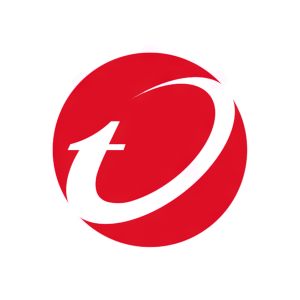Trend Micro Study Finds 39% of Employees Access Corporate Data on Personal Devices
Trend Micro's recent study highlights significant cybersecurity risks as 39% of remote workers access corporate data via personal devices. The survey, involving over 13,000 employees across 27 countries, reveals that 36% lack basic password protection on these devices. Additionally, 52% of workers have IoT devices connected to home networks, which may carry security vulnerabilities. The findings stress the importance of tailored cybersecurity training for employees and recommend employers refine security policies to mitigate risks associated with personal devices and IoT.
- Increased awareness of cybersecurity risks due to the study may lead to enhanced corporate policies.
- The recommendation to adopt cloud-based security models could create business opportunities for Trend Micro.
- 39% of employees accessing corporate data on potentially insecure personal devices poses a significant security threat.
- 36% of remote workers lack basic password protection on personal devices, increasing vulnerability.
- 52% of remote workers have IoT devices, often from lesser-known brands, which may introduce security weaknesses.
- Potential malware infections from home networks could be transferred to corporate networks, heightening risks.
Insights
Analyzing...
DALLAS, Sept. 14, 2020 /PRNewswire/ -- Trend Micro Incorporated (TYO: 4704; TSE: 4704), the leader in cloud security, today released survey results that show smart home devices and their apps represent a major weak link in the corporate cybersecurity chain as the lines between work and home life increasingly blur.
Trend Micro's Head in the Clouds study surveyed more than 13,000 remote workers across 27 countries to find out more about the habits of distributed workforces during the pandemic. It revealed that
Dr Linda K. Kaye, a cyberpsychology expert said: "The fact that so many remote workers use personal devices for accessing corporate data and services suggests that there may be a lack of awareness about the security risks associated with this. Tailored cybersecurity training which recognises the diversity of different users and their levels of awareness and attitudes around risks would be beneficial to help mitigate any security threats which may derive from these issues."
More than half (
There's an additional risk to enterprise networks post-lockdown if malware infections picked up at home are physically brought into the office via unsecured personal devices at organizations with bring-your-own-device (BYOD) practices.
The research also revealed that
"IoT has empowered simple devices with computing and connectivity, but not necessarily adequate security capabilities," said Bharat Mistry, principal security strategist at Trend Micro. "They could actually be making hackers' lives easier by opening backdoors that could compromise corporate networks. This threat is amplified as an age of mass remote work blurs the lines between private and company devices, putting both personal and business data in the firing line. Now more than ever, it is important that individuals take responsibility for their cybersecurity and that organisations continue to educate their employees on best practices."
Trend Micro recommends employers ensure their remote workers are compliant with existing corporate security policies, or, if needed, companies should refine these rules to recognise the threat from BYOD practice and IoT devices and applications.
Companies should also reappraise the security solutions they offer to employees using home networks to access corporate information. Shifting to a cloud-based security model can alleviate many remote working risks in a highly cost-efficient and effective manner.
About Trend Micro
Trend Micro, a global leader in cybersecurity, helps make the world safe for exchanging digital information. Leveraging over 30 years of security expertise, global threat research, and continuous innovation, Trend Micro enables resilience for businesses, governments, and consumers with connected solutions across cloud workloads, endpoints, email, IIoT, and networks. Our XGen™ security strategy powers our solutions with a cross-generational blend of threat-defense techniques that are optimized for key environments and leverage shared threat intelligence for better, faster protection. With over 6,700 employees in 65 countries, and the world's most advanced global threat research and intelligence, Trend Micro enables organizations to secure their connected world. www.trendmicro.com.
![]() View original content:http://www.prnewswire.com/news-releases/trend-micro-study-finds-39-of-employees-access-corporate-data-on-personal-devices-301128440.html
View original content:http://www.prnewswire.com/news-releases/trend-micro-study-finds-39-of-employees-access-corporate-data-on-personal-devices-301128440.html
SOURCE Trend Micro Incorporated







